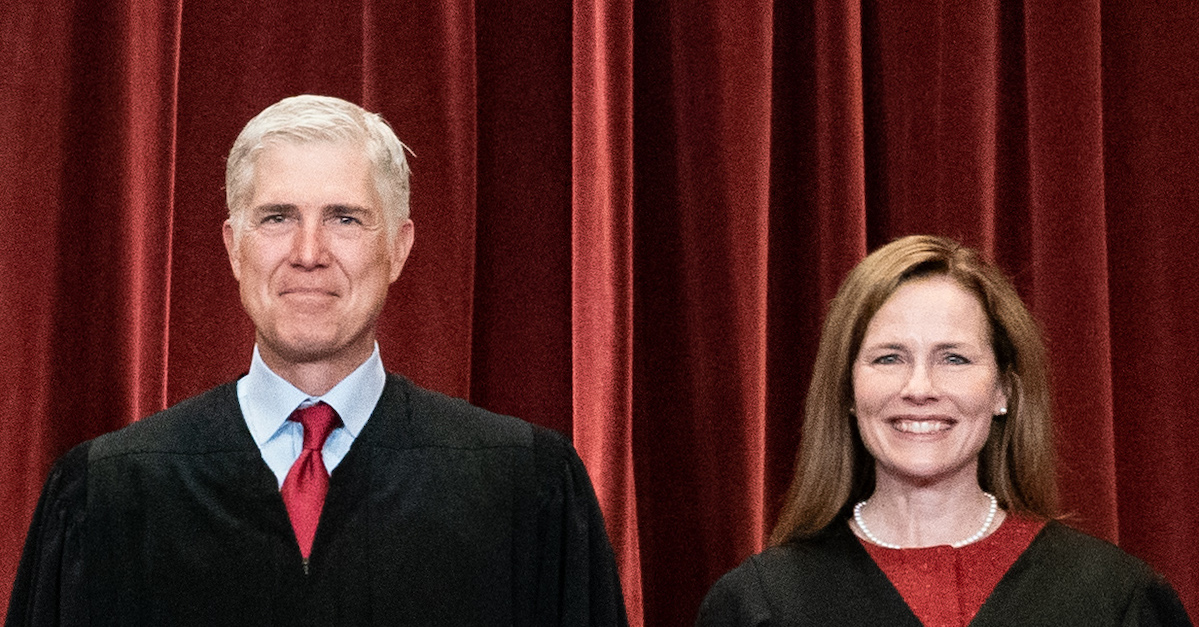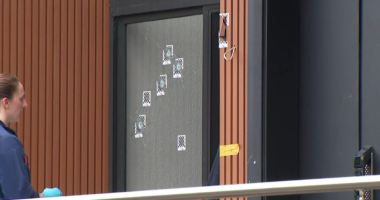Share this @internewscast.com

The Supreme Court of the United States reinstated the death sentence of Boston Marathon bomber Dzhokhar Tsarnaev on Friday, in a 6-3 ruling that highlighted the justices’ opposing views on the death penalty itself. The Court found that the trial court had not made procedural errors that justified overturning Tsarnaev’s death sentence, then sparred about whether death penalty cases should be handled in “special” ways.
After his trial in 2015, Tsarnaev was sentenced to death for his role in the 2013 bombings which killed three people and injured hundreds of others. However, the U.S. Court of Appeals for the First Circuit reversed Tsarnaev’s death sentence, holding that his trial had been unfair in two ways: 1) the trial court should have questioned potential jurors about their media exposure to the case and excluded jurors who had been unfairly exposed; and 2) Tsarnaev should have been permitted to include evidence about his brother Tamerlan’s involvement in an unrelated unsolved triple murder (the “Waltham murders”) to show that Tamerlan exerted significant influence over Dzhokhar. This evidence would have been offered in mitigation in an effort to help the defendant avoid a death sentence.
The votes fell along ideological lines as Justice Clarence Thomas authored the Court’s majority decision and Chief Justice John Roberts and Associate Justices Samuel Alito, Neil Gorsuch, Brett Kavanaugh, and Amy Coney Barrett joined in full.
Justice Thomas’ 20-page opinion had a distinctly prosecutorial feel. Thomas recounted the Tsarnaev brothers’ history, their plan to “wage radical jihad,” their gruesome crimes at the Boston Marathon, and detailed the impact the terrorist attack had on victims. Thomas included the names of the those who died, described their injuries at length, and praised first responders. Next, Thomas recounted the exhaustive questioning conducted by the trial court during voir dire.
The majority found no reason to overturn the trial court’s decision. Jury selection, wrote Thomas, always falls within the trial judge’s discretion, and the judge in Tsarnaev’s case took pains to ensure the appropriateness of the seated jury. In Thomas’ words, justices’ decision about the trial court’s exclusion of potentially mitigating evidence “fares no better.”
The trial court considered the evidence as well as Dzhokhar’s rationale for introducing it, but ultimately opted to exclude the evidence on the grounds that was “without any probative value” and “would be confusing to the jury.” Remarking that proceedings conducted under the Federal Death Penalty Act (FDPA) “are not evidentiary free-for alls,” Thomas concluded that the trial court had been well within its right to exclude the evidence.
Thomas concluded his opinion with a blunt summary of the proceedings: “Dzhokhar Tsarnaev committed heinous crimes. The Sixth Amendment nonetheless guaranteed him a fair trial before an impartial jury. He received one.”
The usual trio of dissenters — Justices Stephen Breyer, Sonia Sotomayor, and Elena Kagan— disagreed, but to be clear neither Sotomayor nor Kagan signed off on this part of Breyer’s dissent:

Elsewhere in his dissent, Breyer detailed the potential impact of the “Waltham murders” evidence, and argued that the First Circuit had been correct to reverse on the basis of its exclusion.
“[A]buse-of-discretion review is not toothless; and it is entirely proper for a reviewing court to find an aabuse of discretion when important factors . . . are ‘slighted,”” wrote Breyer.
The heart of the disagreement between the six justices in the majority and the three in the dissent, however, related to the death penalty itself. Thomas’s majority criticized the dissenters for “ignor[ing] our traditional standard for appellate review of evidentiary determinations.” Breyer was clear, though, declaring: “death penalty proceedings are special.”
To this, Thomas responded directly:
First, the dissent suggests that because “death penalty proceedings are special,” district courts should be more hesitant to find a risk of confusion in this context than in others. But the dissent identifies nothing in the text of the FDPA to support its position. Congress defined what considerations district courts must balance when making admissibility determinations under §3593(c), and it chose to define one using a term familiar in the law of evidence—”confusing the issues.” Nothing suggests that Congress intended district courts to evaluate that concern differently under the FDPA.
Breyer did not back down from his observation that death penalty cases are “special.”
Three courts including this Court have now examined this record with care. Why? Why are appellate courts so deeply involved in what is, after all, a trial-based evidentiary matter? The reason, in my view, lies in part in the nature of the underlying proceeding. It is a death penalty proceeding. And where death is at stake, the courts (and Congress) believe that particular judicial care is required.
While the court’s majority may have refused to treat this capital case with the kind of “special” care suggested by Breyer, Justices Barrett and Gorsuch went a step further. In a brief concurrence penned by Barrett and joined by Gorsuch, the two wrote to emphasize their “skepticism” that appellate courts should even be deciding cases like this one.
Barrett and Gorsuch, former Seventh Circuit and 10th Circuit judges respectively, questioned whether federal circuit courts have “supervisory power” to review procedural decisions of district courts. Acknowledging that the Supreme Court does indeed have this kind of power, Barrett suggested that whether the First Circuit ever had the authority to review the district court’s procedural decisions is something that should be reconsidered. Allowing that the First Circuit “understandably” followed SCOTUS’s lead by making the decision it did, Barrett urged, “But before we go further down this road, we should reexamine the map.”
“Not only have we failed to identify a source for this supposed authority, it is unclear that any exists,” Barrett said.
Legal experts were quick to pick up on Barrett’s suggestion, and its potential impact.
Most interesting part of #SCOTUS Tsarnaev opinion is ACB concurrence questioning whether circuit courts have “supervisory power” to regulate trial court proceedings. Gorsuch joined.https://t.co/KsJblDM7qI
— Jonathan H. Adler ?? (@jadler1969) March 4, 2022
In a tweet, University of Texas law professor Steve Vladeck commented that Barrett’s recommendation “would be a big — if really nerdy — deal far beyond death penalty cases.”
In Tsarnaev, Justices Barrett and Gorsuch write separately to call into question whether courts of appeals (as opposed to #SCOTUS) have “supervisory power” to impose procedural rules on district courts.
This would be a big — if really nerdy — deal far beyond death penalty cases: pic.twitter.com/ZinArFfKOz
— Steve Vladeck (@steve_vladeck) March 4, 2022
Similarly, Slate’s Mark Joseph Stern commented that a change to the rules of supervisory power “would overturn a lot of precedent.”
In a concurrence, Barrett, joined by Gorsuch, argues that the federal appeals courts have NO supervisory power to impose procedural rules on district courts, which would overturn a lot of precedent. (Barrett says it’s not REALLY precedent, just dicta.) https://t.co/agOYbkb216 pic.twitter.com/XTURyp3mgE
— Mark Joseph Stern (@mjs_DC) March 4, 2022
There was no mention, however, of the point Justice Barrett made during oral arguments, when she pressed the Biden administration to explain its “endgame” in the appeal.
“[T]he government has declared a moratorium on executions, but you’re here defending his death sentences,” Barrett pointed out. She predicted that a win for the government (and one that has now been realized), would mean that Tsarnaev “is relegated to living under threat of a death sentence that the government doesn’t plan to carry out.”
[Erin Schaff/POOL/AFP via Getty Images]
Have a tip we should know? [email protected]
Source: This post first appeared on














